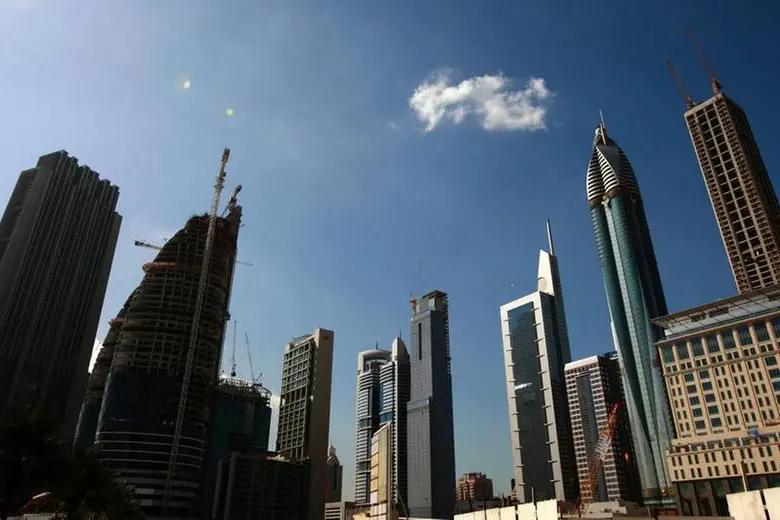PHOTO
Saturday, Oct 22, 2016
Dubai: Fourteen new recycling stations, higher disposal charges per tonne of waste for businesses and plans to shutter some of the last shrinking landfill spaces in Dubai are stemming the garbage stream, say experts.
But other smaller-scale waste programmes still have a large role to play in Dubai further meeting its target of zero waste to landfill by 2030 by helping divert everything from discarded used computers to excess food waste from hotel kitchens.
Every item recycled couldn’t be more timely as Dubai wrestles to reduce its growing waste stream which totalled 14.4 million metric tonnes in 2015, up from 10.1 million metric tonnes in 2013, Dubai Statistics Centre figures show.
Abhay Bhargava, associate director and regional head - Middle East, Energy and Environment Practice, Frost & Sullivan, praised a Dubai Municipality computer refurbishment programme under way in Dubai as a good example of waste diversion strategies that work.
As many as 3,500 old computers are repaired by the municipality’s Digital Refurbishment Centre Information Technology and then donated free of charge to Asian and African schools to help underprivileged children as well as divert electronic waste from going to landfills.
“The electronics refurbishment programme is surely having an impact in terms of reducing the waste that would be heading to the landfill. However, we believe that awareness and education are required to increase the impact of this programme, and more such programmes need to come up across the region, and for different types of waste, to truly make a sizeable impact on reducing the waste that is heading to the landfills,” Bhargava said in an interview with Gulf News.
Khalid Idris, business analyst, Digital Devices Refurbishment Centre Information Technology, told Gulf News that the programme, in partnership with Microsoft, rescues 30 per cent of computers the centre receives from residents every year and businesses who donate their old electronics.
Residents who want to throw away their old computers should drop them off for refurbishment at any Dubai Municipality office such as in Deira, Al Karama or Al Manara and should not use the many new recycling centres recently established throughout the city, he said.
Since 2007, the year the refurbishment centre was formed, Idris said 179,702 computers have been donated for refurbishing and 76,661 of these have been fixed. The refurbished computers are distributed in and out of the UAE by the Mohammad Bin Rashid Foundation.
“It is always good when computers like this are not going to the landfill. About 20 items in each computer are dangerous for humans and the environment,” Idris said, adding that compounds such as mercury used in motherboards and microchips cause adverse health effects.
Other innovative players such as UK-based firm Winnow are coming on the scene to help Dubai businesses find solutions to increasing garbage problems.
In an interview with Gulf News, Marc Zornes, Winnow co-founder, said his firm is working with hotel kitchens in Dubai to identify the amount of food waste they accrue daily.
The system allows chefs to use a “tablet app to identify the types of food they’re throwing away, and, combined with data collected from an electronic scale, the smart meter tells them the value of what’s being binned. The daily reports kitchens receive give an accurate insight into what is being wasted — and the value of that waste — that prompt chefs to improve production processes,” said Zornes.
“In hotels that prepare food in advance — breakfast buffets, Friday brunches, and banquets — we find between 7 per cent and 20 per cent of food is thrown away. Winnow operates in 15 countries now and we’ve proven all over the world that we can help kitchens cut this waste in half,” he said.
“Whilst the business case is clear there is also a significant environmental benefit in reducing waste. Winnow estimates its clients are saving 1,050 tonnes of waste annually from landfill or 4,500 tonnes of CO2 emissions prevented,” he said.
Emirates Environmental Group noted in a recent public event that the UAE witnesses the loss of 3.27 million tonnes of food annually worth $4 billion (Dh14.69 billion).
Dubai’s annual general waste
• 2013, 10.1 million metric tonnes
• 2014, 10.3 million metric tonnes
• 2015, 14.4 million metric tonnes
Source: Dubai Statistics Centre
Disposing of waste in Abu Dhabi
Tadweer (The Centre of Waste Management - Abu Dhabi) said people should not simply dispose of their electronic waste in the garbage.
Rather, people can take their laptops or electronics to shops certified to dispose of such waste properly in Abu Dhabi.
- Where can people put the waste?
People should take their Waste Electrical and Electronic Equipment (WEEEs) to electronic shops/traders where they can exchange it for money or electronic products.
- How do you (Tadweer) collect it?
Electronic shops/traders are required to store the WEEEs until 70 per cent to 80 per cent of the store is full. Following that, a request is submitted to Tadweer via a permitted transportation company to transfer/transport the WEEEs to one of the permitted WEEEs facilities in the UAE. Tadweer issues a no objection certificate for safe transportation and management of the WEEEs at one of the UAE-permitted WEEEs facilities.
- What happens to this waste after it is collected?
The permitted WEEEs facilities in the UAE usually dismantle the WEEEs and segregate them into different types, which are then shipped overseas for recycling and/or reuse.
Please note that given the small size of the UAE’s population, establishing a WEEEs facility requires a large-scale operation in order to be cost-effective and attract the private sector to invest. Thus, 1 to 2 WEEEs management facilities are sufficient to serve the UAE. This is in accordance with international practices of such waste businesses.
-By Sarvnaz Geranpayeh, Staff Reporter
By Derek Baldwin Chief Reporter
Gulf News 2016. All rights reserved.





















